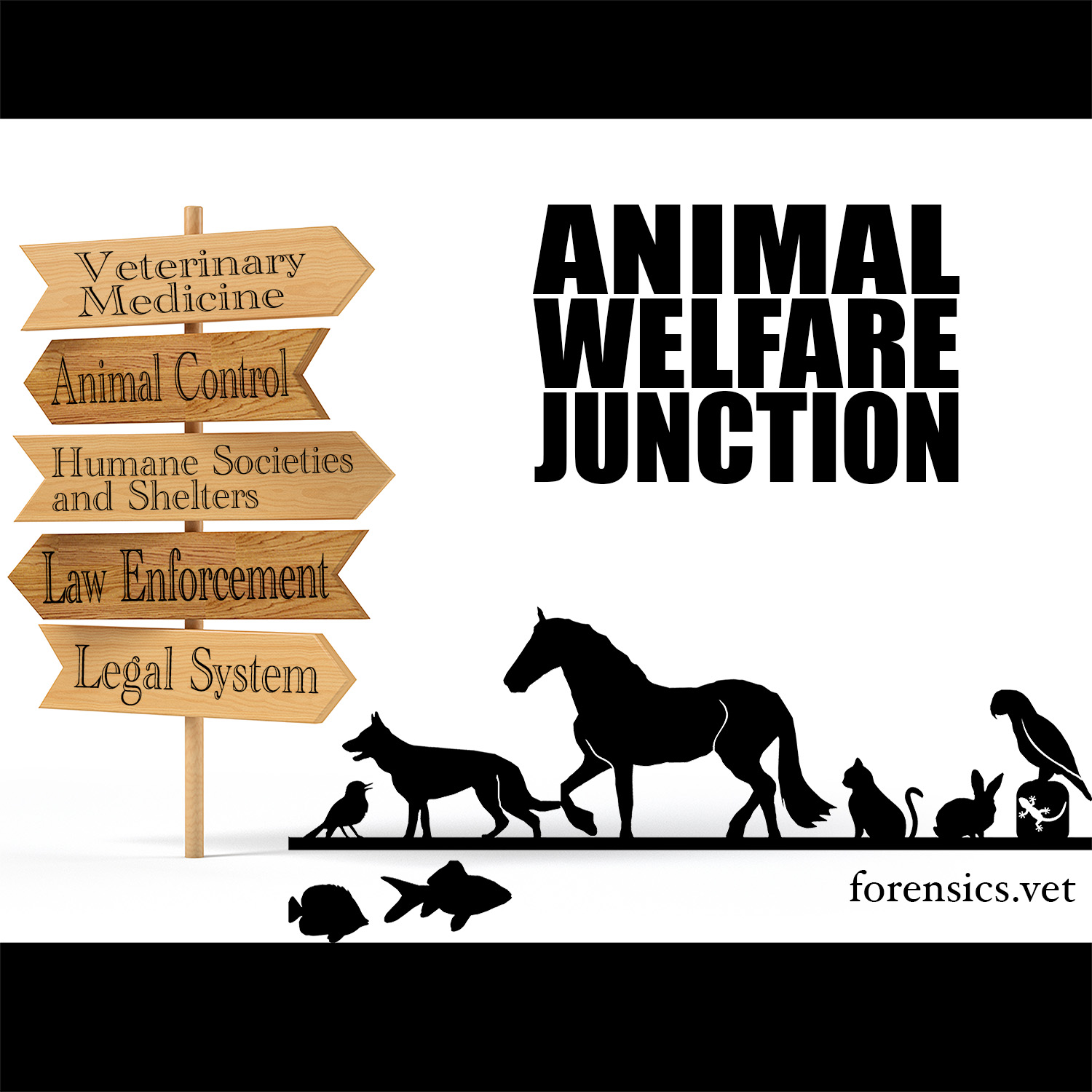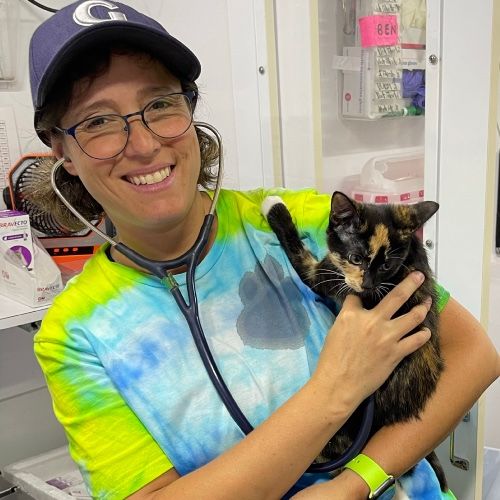Animal ForensiCon 2025: Crime Scene Processing with FBI Agent Lauren Regucci
FBI Agent Lauren Regucci discusses the FBI’s 12-step approach to evidence collection and the importance of properly documenting a crime scene.
The 2025 Animal ForensiCon: The Animal Forensic Investigations Conference is a three-day event, offered in Daytona Beach Shores, Florida from May 7th to 9th, 2025. The conference is hosted by the University of Florida’s Veterinary Forensic Sciences Laboratory.
ForensiCon offers workshops and educational sessions on a wide variety of topics pertaining to criminal investigations, law, small animal investigations, equine and livestock investigations, and wildlife crimes. This conference is open to anyone interested in animal forensic investigations. Attendees will also have the opportunity to network with faculty, experts, and investigators
Transcript
This last presentation was really cool because I gotta say like, you
2
:know, you, you think about the FBI
and it's like, wow, the FBI, right?
3
:Um, but here we have Lauren
Regucci, who is an FBI agent.
4
:So thank you so much for being here.
5
:Lauren Regucci: Thank you for having me.
6
:DrG: You talked about something that
is super important for everybody
7
:that is involved in crime scene
investigations and it's how to do
8
:the crime scene investigation, right?
9
:Yes.
10
:So I guess before we get started, can you
tell us what it is that you do and how it
11
:relates to the conversation that you said
12
:Lauren Regucci: today?
13
:Sure.
14
:I'm the senior team leader for
the Evidence Response Team for
15
:the FBI office in Jacksonville.
16
:We cover 40 counties out of
the 67 counties in Florida.
17
:And what the Evidence Response Team
is charged with doing is making sure
18
:that evidence from a crime scene
or from a federal search warrant is
19
:preserved, packaged, collected in the
most pristine manner that we can so that
20
:we can maintain its original condition
for the lab or for a court of law.
21
:DrG: One of the things that you said
that resonated is trying to get everybody
22
:to do somewhat the same thing, right?
23
:Like to follow the same processes.
24
:Yes.
25
:Which I think that is really
important because then anybody can
26
:go to a different location, and
everybody's on the same page, right?
27
:Lauren Regucci: Yes.
28
:So because we all follow in the FBI,
uh, on the Evidence Response Teams,
29
:which are in every field office
across the country, since we all
30
:follow the same 12 step process.
31
:We are a force multiplier for each other.
32
:So if there is a 911 type scenario, where
one team is not gonna be able to handle
33
:all of that, we can call in other offices
from around the country to come assist us
34
:and we blend seamlessly together because
we all have followed the same process.
35
:We've all been trained the same way.
36
:So we know, okay, if we need to
do a sketch, we know everything
37
:that has to be on that sketch.
38
:If we need to do photos, we know
all of the different types of
39
:photos that have to be taken.
40
:And we can really integrate seamlessly.
41
:DrG: Can you give an overview of
what this 12 step process is like?
42
:Lauren Regucci: Sure.
43
:The 12 step process is basically a thought
process that we try to maintain as we
44
:go into crime scenes or into scenes that
we're going to be collecting evidence.
45
:And the way the thought process works
is that you're, you're basically
46
:following why you're there, what
you're there to look for, and the
47
:trying to follow the best manner of
collecting that evidence so that it
48
:can make it to the lab or to court.
49
:It starts with preparation, which is way
before you even get to the scene where
50
:you're making sure that you have all the
equipment and supplies that you need.
51
:It moves on to being able to approach
the scene and get a feel for what
52
:you're looking at and what you are
expected to do at this particular scene.
53
:Figuring out how you're going to collect
that evidence, making sure that you
54
:photograph all of the evidence, making
sure that you sketch the scene, and then
55
:really making sure that you document
everything in every manner possible.
56
:Whether it's, again, whether it's
photography or just writing down or
57
:labeling something before you package it.
58
:These are all the things that you
need to maintain so that at the end
59
:of the scene or as you're going to
court, you're able to say, these
60
:are all the things that we found.
61
:I know a hundred percent
that this is what was there.
62
:This is why we found it,
this is why it's relevant.
63
:This is how we documented it, and we're
using it now as evidence for this crime.
64
:DrG: I think that's really important
because in, in so many cases, like the,
65
:somebody sees an item of evidence and
they don't know what it is or how to
66
:handle it, and then they collect it
improperly, and then it can either be
67
:thrown out or it just degrades, right?
68
:Yes.
69
:Like helping in scenes and they're
like, we collected blood and we put
70
:it in a plastic bag and it's like, no.
71
:Right.
72
:Um, so, you know, there, there
are different ways, and actually I
73
:believe that the manual that I got
when I was doing my forensic science
74
:masters was an FBI evidence, uh,
how to collect evidence and how to
75
:package it and that kind of stuff.
76
:Mm-hmm.
77
:So, um, for anybody listening
that wants to learn more about
78
:this, what resources are there?
79
:Lauren Regucci: It depends on
where you're coming from in
80
:wanting to know the, the questions.
81
:If you're a law enforcement professional,
or you work in, for instance, animal
82
:abuse crimes, or if you are someone
who is going out to these scenes, or
83
:for instance, a vet who is taking in
this kind of information, I would say
84
:reach out to your local FBI office.
85
:They are going to have an evidence
response team, senior team leader, and ask
86
:for some guidance on evidence collection.
87
:If you are a student or you are a
teacher of forensic students, there is
88
:always an opportunity for you to submit
a request for a senior team leader
89
:or an evidence response team member
to come out and talk to your folks,
90
:Just to go through basically what I did
to give them some education on why you
91
:want to follow the procedures you follow.
92
:DrG: Do you get a lot of animal
cases or is that kind of rare?
93
:Lauren Regucci: Um,
I've only had a handful.
94
:We had a case where we were
investigating a horse doping operation.
95
:So we, there were no horses
there, but we were investigating
96
:a situation that involved that.
97
:I've had animal abuse cases that were
present in a scene with child abuse.
98
:Um, so that became more of the focus.
99
:And there were a, a couple scenes
where we've had where, um, we're
100
:out there for drugs or gangs
and they also have dog fighting.
101
:And so they have a, a dozen
dogs chained up at the property.
102
:So, and we have worked with the
local offices in those situations to
103
:have them come and collect the dog.
104
:DrG: And I would say, would you say that
regardless if it's an animal case or not,
105
:everything kind of needs to be processed
the same way with the, with the difference
106
:that the animals are life evidence.
107
:But
108
:Lauren Regucci: yes, a hundred percent.
109
:I mean, you know, you have, if we
have a room that we're photographing
110
:and we're trying to get every aspect
of this room that we're sitting
111
:in and we're documenting all of
that, you can do the same thing.
112
:So if you have.
113
:Uh, you know, a dog in front of you,
you're going to photograph all the
114
:different sides of the dog, under the
dog and so forth to get the, a complete
115
:picture of what that dog looks like.
116
:You can also do a sketch of the dog and
say, you know, he's got a burn mark here.
117
:He's got a bullet hole here,
or whatever the case may be.
118
:Um, so that you're, you're documenting
all of that information on the dog and
119
:you really can't over document something.
120
:It might seem like it's overkill,
like, well, we have the photos.
121
:Why would we need to sketch this out?
122
:But.
123
:It might be, it might prove something
relevant to you down the road
124
:that you don't know at the time.
125
:DrG: Well, this is all really
good information and uh, thank you
126
:so much for being here and thank
you for everything that you do.
127
:Thank you.
128
:I appreciate it.

